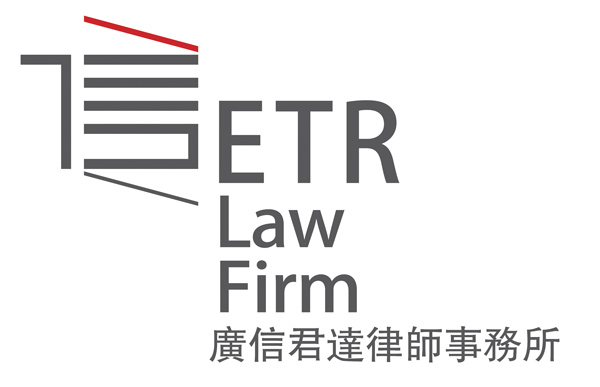In the digital economy, online arbitration is widely used in commercial disputes instead of traditional commercial arbitration. It is still in a developmental stage though, and the judicial review of online arbitration procedures is controversial.
JUDICIAL REVIEW DISPUTES
Currently, judicial review disputes are mainly focused on the validity of documents-only examinations and electronic services. Some courts have refused to recognise and enforce online arbitral awards on the grounds that the documents-only examinations adopted by the arbitral institution undermine the basic procedural rights of the party concerned, or other similar grounds. [see Beijing Shengyuan Chengan Asset Management v Xu (2019), Chengdu Youlala Information Technology v Wang (2019), Changzhou Branch of China CITIC Bank v Qiu (2019), and Shenzhen Dadi Xintong Guarantee v Sun (2019).]

Senior Partner
ETR Law Firm
The specific reasons for the above-mentioned decisions are that neither the Civil Procedure Law nor the Arbitration Law provides detailed and specific provisions on online arbitration procedures, while the China Arbitration Association has not yet issued corresponding rules, and there are no normative documents to support the effectiveness of documents-only examinations.
If the arbitral institution relies merely on its own form of arbitration rules and hears the case by an arbitrator sitting alone, the arbitration award won’t be enforced due to an absence of guarantees for the basic procedural rights of the party subjected to enforcement in its arbitration procedure, which is in violation of the statutory requirements.
In contrast, some courts have held that the documents-only examinations in online arbitration do not infringe the basic procedural rights and the autonomy of the parties, since their choice of online arbitration as a dispute resolution method also tacitly accepts the rule of documents-only examinations.
Another dispute on judicial review concerns the validity of electronic services. The judicial review opinion of some courts held that adopting electronic services constituted a procedural violation. According to article 87 of the Civil Procedure Law, in the absence of a clear indication of whether there is evidence to prove that the executee received the materials served electronically, the procedure lacks a guarantee for the executee’s procedural rights and should be deemed procedurally unlawful.
One example is the case of Inner Mongolia Branch of Guangdong Tongchan car services v Li (2019). Even if there is evidence that the party subject to enforcement of the arbitral award received the corresponding legal notice documents electronically, which the arbitral tribunal confirms, some local courts still ruled that the electronic services constituted a procedural violation (for example in the case of Beijing Shengyuan Chengan Asset Management v Zhao (2019). In practice, some local courts have upheld the effectiveness of electronic services, as with Cui v Guangzhou Baiyue Catering Management (2018).
JUDICIAL REVIEW FLAWS

Lecturer
Guangzhou Business School Law School
The author believes that the current standard of judicial review has certain flaws in its reasoning. Firstly, an agreement that has been reached between the parties on resolving disputes by online arbitration means the parties have agreed to accept a package of arbitration rules. In theory, categorising autonomies should be recognised, but the review should not only focus on the autonomy of the parties while ignoring the autonomy of the arbitral institution and the arbitral tribunal. Secondly, judicial review ignores the value of efficiency.
Articles 15 and 75 of the Arbitration Law do not expressly prohibit online arbitration procedures, such as documents-only examinations, and grant arbitration institutions the right to formulate their own arbitration rules without violating mandatory provisions like the Arbitration Law.
The second weakness of the judicial review standard is reflected in the overlooking of the efficiency value. Judicial review of online arbitration procedures generally adopts the principle of prudence and follows more offline judicial review standards for new issues, with the intention of maximising the protection of the due procedural rights of the parties. However, in the era of the digital economy, the application of technology has changed the mode of economic operation, while generating a large number of online disputes that traditional offline dispute resolution mechanisms cannot efficiently resolve.
If the traditional review standard is fully adhered to, the due procedural rights of the parties may be guaranteed, but in reality, it is easy to overlook small, online disputes that are difficult to resolve by traditional means.
ANALYSIS AND SUGGESTIONS
The substance of the dispute over judicial review in practice is the conflict between the protection of parties’ procedural rights and the need for efficiency in dispute resolution. A proper judicial review requires a balance between the values of the parties’ procedural rights and the efficiency of dispute resolution in online arbitration procedures.
For this reason, judicial review of online arbitration procedures should not be conducted in accordance with the traditional standards of arbitration procedure, but rather should consider the online arbitration hearing model.
The authors believe that the standard of judicial review for online arbitration varies with different hearing models, and cannot be entirely based on traditional offline arbitration hearing standards.
In practice, there are three types of online arbitration models:
-
- A combination of online and offline models, where the information of the parties is processed online enabling paperless arbitration;
- A full online arbitration model, where some arbitration institutions adopt the documents-only examinations by using the online arbitration cloud platform, thereby saving costs and improving the efficiency of dispute resolution; and
- An intelligent arbitration model, where the mechanical intelligence of the system is combined with the experience of arbitrators to achieve bulk arbitration.
In practice, different models are used for different types of disputes. Intelligent arbitration is often used for highly categorised cases with relatively small objectives.
The first model, which is still a traditional arbitration model in essence, should focus its judicial standards on guaranteeing the parties’ procedural rights.
Cases heard under the second model are more evidence-based, so the efficiency of dispute resolution should weigh heavily with its judicial standards.
In the third model, where some procedures are algorithmic instead of manual, the judicial review should pay more attention to the timeliness of the data set and any algorithmic bias that results.
Chen Xue’er is a lecturer at the Guangzhou Business School Law School, and Jeffrey Quan is a senior partner at ETR Law Firm. Su Yuguo, a partner at Lawsons Law Office, also contributed to this article.

10 & 29/F, Chow Tai Fook Finance Centre
No. 6 Zhujiang Dong Road
Guangzhou 510623, China
Tel: +86 20 3718 1333
Fax: +86 20 3718 1388
Email:
etr@etrlawfirm.com



























